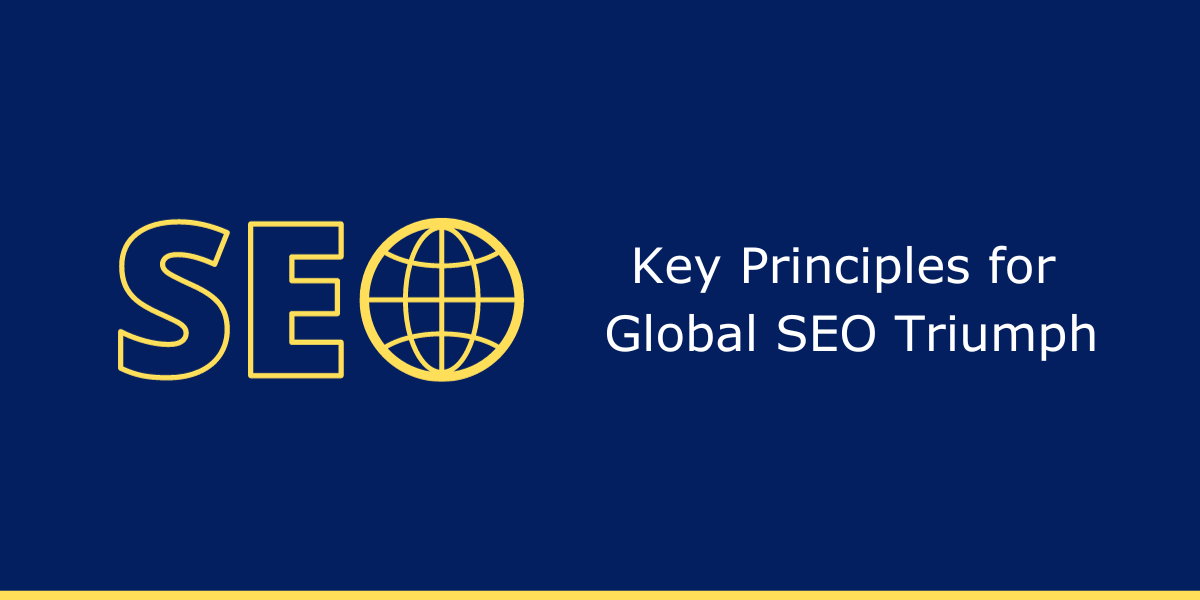
In the ever-evolving landscape of SEO in 2023, mastering the art of search engine optimization remains as challenging as ever, particularly when extending your reach beyond borders. Achieving success necessitates a substantial investment of time and effort to develop a strategic approach that balances consistency and adaptability. Your website should be a valuable asset rather than a hindrance when targeting a new international audience. More than simply providing content in multiple languages is required; a more nuanced approach is needed. Each page must be meticulously optimized to align with the audience’s unique preferences and search habits in the respective countries. This optimization is essential not only for enhancing visibility but also for establishing credibility in the eyes of search engines. To guide you through this intricate process, here are four crucial steps to achieving international SEO success in 2023.
Don’t Take Your Site’s URL Structure Lightly
First and foremost, it’s crucial to consider this aspect. When targeting an international audience, such as in New Zealand’s case, a significant decision revolves around how you structure your web presence. You have three primary options: a country-coded subdomain (e.g., nz.yourbrand.com), a subfolder (yourbrand.com/nz), or an entirely separate domain optimized specifically for SEO targeting your New Zealand customer base.
Opting for a distinct domain demands starting from scratch, with the potential downside of dispersing your SEO data across multiple pages, making it more challenging to monitor effectively. On the other hand, selecting one of the first two options – a subdomain or a subfolder – simplifies data collection and interpretation. Still, it may require content creation or modification and adjustments to your SEO strategies for the New Zealand audience.
Streamline Your Site’s User Experience for Country-specific Audience
Once again, let’s consider New Zealand as our example. Regardless of the URL structure you choose, even though most of the New Zealand population speaks English, you’ll need to consider translating your pages into Maori, the other widely spoken (though less widely than English) language. If your original website uses US English, you can’t simply replicate the same language patterns for New Zealand, as the country predominantly follows UK English spellings. Failing to address this distinction can be a significant turn-off for some of the audience you aim to attract.
However, translation alone is not the end of the road. To ensure that Google displays your content to the right audience, you must implement hreflang attributes. These attributes allow Google to present your page exclusively to users who access it from IP addresses associated with the language you are targeting or have provided translations for.
Bridge the Gap between Keyword Differences among Countries
The popularity of a keyword can vary significantly between countries. What’s trending at the top in the US might be at the bottom elsewhere, and vice versa. Pursuing the same keyword strategy that brought success in one country for another can be a colossal mistake. It’s vital to be acutely aware of the differences in keyword usage between the countries you intend to expand into. This is precisely where tools like SEMrush and Ahrefs prove invaluable. They enable you to conduct thorough keyword research and analysis, considering the search volume within your target country, allowing you to tailor your keyword strategy accordingly.
Furthermore, narrowing down user intent within your target country is highly beneficial. By aligning your keyword and content strategies, you can create content that stands a better chance of long-term success. However, it’s essential to recognize that one of your most significant challenges is understanding how culture and demographics influence language usage. People may refer to things using different words based on their cultural and demographic backgrounds. This factor must be considered before embarking on global business expansion.
Look to Build Country-specific Backlinks
If you’re considering expanding your business internationally, it likely means you’ve already achieved significant success in your domestic market. And if you’ve succeeded at home, you understand the crucial value of high-quality backlinks. When it comes to expanding your website’s global reach, high-quality backlinks remain paramount, with one key difference – these backlinks should originate from country-specific websites. So, if you aim to capture the New Zealand market, your backlinks should ideally come from websites with a .nz domain extension. This approach aligns with user preferences and earns favor with Google, enhancing your search engine standing.
Speaking of expertise, it’s essential to highlight that we are the leading International Link-building Agency. With a track record of ranking over 30,000 websites and over 50,000 keywords across various niches, countries, and languages, we possess the experience and skills needed to assist you. Feel free to contact us at your convenience or select a package tailored to your specific requirements, and we’ll handle the rest from there.

